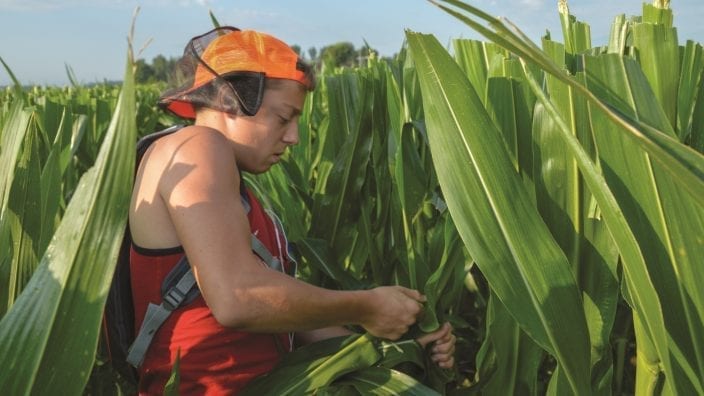Legal with Leah: New low risk retail food license for direct marketers
A new low risk license should bring consistency across Ohio in regard to nonmechanical refrigeration.
Read MoreEveryone is aware of the requirements to pay minimum wage, but there are some exemptions for agriculture that are good to keep in mind if you are a farm employer. On this Legal with Leah, Ohio Farm Bureau Policy Counsel Leah Curtis covers minimum wage laws and how exemptions are not always what the market requires.
Listen to Legal with Leah, a podcast featuring Ohio Farm Bureau’s Policy Counsel Leah Curtis discussing topics impacting farmers and landowners.
Ty Higgins [00:00:00] Finding and retaining skilled workers on the farm is a challenge. Ohio Farm Bureau and Nationwide have created a new collection of labor resources to help farmers understand the long-term implications of the labor shortage and provide solutions that will help position your farm business to better attract, hire and retain farm employees. You can find these new labor intelligence reports and guides to finding and hiring retaining farm employees at Ohio Farm Bureau.org. To coincide with these resources, we’re doing a series of labor topics for our Legal with Legal podcast. Joining me is Leah Curtis, policy counsel with Ohio Farm Bureau.
Ty Higgins [00:00:37] Everyone’s aware of the requirements to pay minimum wage, but there are some exceptions for agriculture that are good to keep in mind if you’re a farm employer. Let’s start with what the minimum wage law is.
Leah Curtis [00:00:48] Generally, most employers are required to pay at least the minimum wage to employees that they hire. There is a federal and a state minimum wage in most every state and in most cases within Ohio, the state’s minimum wage is what will apply. That’s currently at $10.10 per hour. And the Ohio Constitution actually has a minimum wage amendment to it that requires our state minimum wage to be updated every year based, basically based on inflation.
Ty Higgins [00:01:13] Makes me feel old. My minimum wage was $4.25 back when I was a teenager. Even though we have a state minimum wage, federal law does govern a lot of how the minimum wage applies here in the Buckeye State.
Leah Curtis [00:01:26] So even though we have that state minimum wage, that’s what the actual wage rate is, still our minimum wage law — as far as who has to pay and how it’s paid — is in the most part based on federal law and mostly incorporates a lot of those definitions and exemptions that are already in federal law for Ohio law as well.
Ty Higgins [00:01:44] So there are a few exceptions from minimum wage for agriculture. First, there’s what’s called the 500 man day exemption. What is that?
Leah Curtis [00:01:52] So this one’s a little bit complicated, but an employer in agriculture who does not use more than 500 man days in any calendar quarter in the preceding calendar year is exempt from minimum wage. So a man day is any day in which an employee works for the employer for at least an hour. So if you had two employees, they worked every day of the week for at least an hour each day, that would be 14 man days for that week. 500 man days kind of works out in a quarter to be roughly equivalent to about seven full-time employees. But of course, if you’re thinking about using this exemption or are using this as a justification, you do want to review your own employment and your hours and make sure you’re very clear about what are the number of hours and man days that you have to determine if you fit into this exemption.
Ty Higgins [00:02:38] You’re right. That is a little complicated, but there are some exceptions that are a little more general. Can you tell us about those?
Leah Curtis [00:02:45] So in addition to the 500 man day exemption, there are ag exemptions from minimum wage for ag employees that are immediate family members, employees that are principally engaged in the range production of livestock, local hand harvest laborers so long as they travel from their home each day and are paid on a piece rate basis in traditional piece rate occupations. And they’re engaged in that occupation less than 13 weeks in the preceding calendar year. And then non-local minors who are under age 16. Hand harvesters paid on that piece rate again in a traditional piece rate organization employed on the same farm as their parents and paid the same piece rate as those over 16. So those are a little more general, but again, apply to those traditional farm employers.
Ty Higgins [00:03:32] Important to to remember that from a labor standpoint, minimum wage and these exemptions are the law, but it’s not always what the market requires.
Leah Curtis [00:03:41] So just like any other employment benefits, the wage that your farm is going to use is going to be determined not just by what the law is, that the law is saying what it has to be maybe at the base level. That’s going to be determined by your local labor market, the types of jobs you’re hiring for, and then the ideal candidates that you want and the realities of your business. But the law can help the employer understand what their legal obligations are. And those can be different based on what the market realities are for your business and in your area.

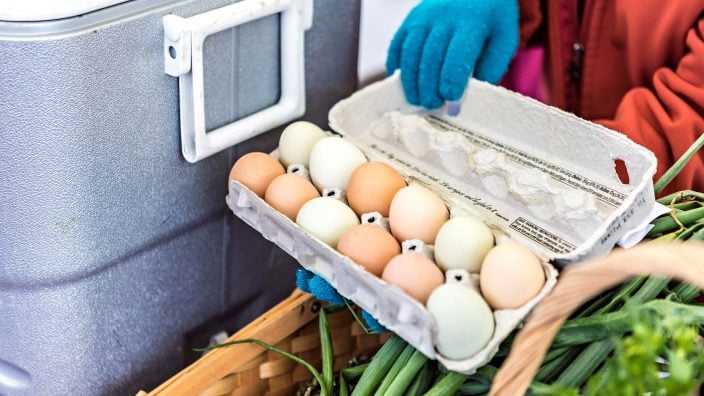
A new low risk license should bring consistency across Ohio in regard to nonmechanical refrigeration.
Read More

The law requires most businesses to report information about their beneficial owners, and the intent is to try to make it harder to illegally hide assets and commit financial crimes.
Read More

How will this impact Ohio farmers and what can be done to allow for use of the products that have already been purchased?
Read More

What are some of the things landowners need to be aware of, as they might see more people wanting to come out to their property and to rural Ohio for the best seat in the house?
Read More

How will passage of Issue 2 impact agribusinesses and farm employers?
Read More

Policy Counsel Leah Curtis discusses Ohio trespassing laws and the liability that can fall on landowners when people enter their property.
Read More

When property owners may have issues with trees or encroachment on their property, they often turn to Ohio Farm Bureau for information.
Read More
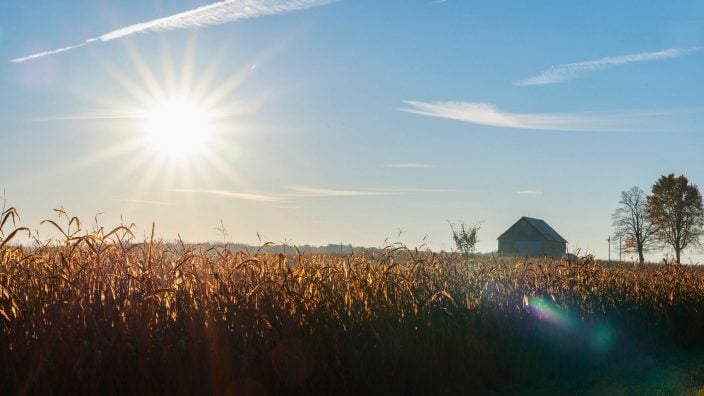
Even though there can be zoning in rural areas of Ohio, there are limitations in the law when it comes to agriculture.
Read More
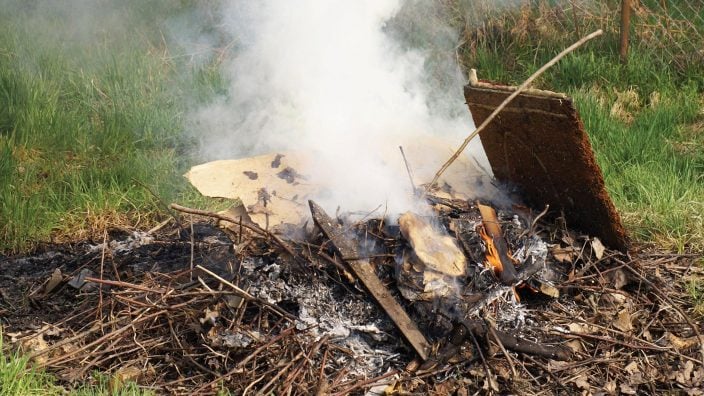
During the months of March, April, May, October and November, open burning in Ohio is prohibited during the hours of 6 a.m. to 6 p.m.
Read More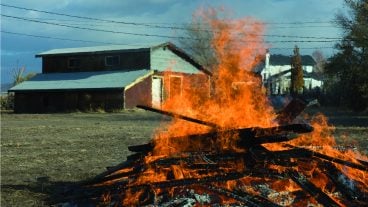
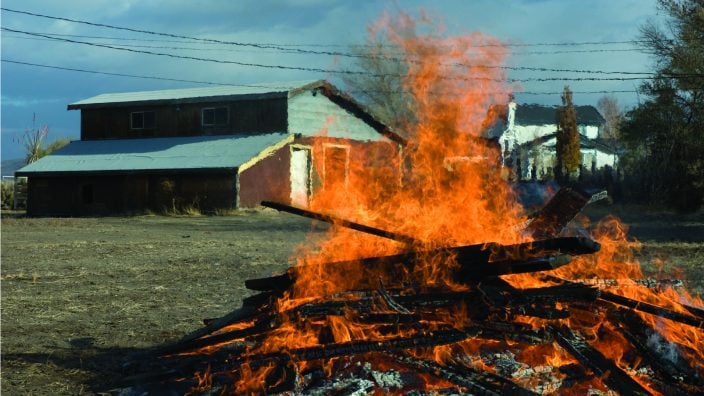
Depending on what is being burned and where, there will likely be restrictions from either the Ohio Environmental Protection Agency or possibly the Ohio Department of Natural Resources.
Read More